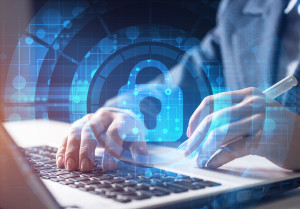 Are you drowning in passwords? The average American has around 100 passwords for online accounts, according to a study from password management company NordPass. How many different login credentials do you use every day? You probably have several accounts for your favorite retailers, banks or credit unions, e-mail and much more. And these are just in your personal life. Chances are, you have a number of passwords you use each day at your business as well.
Are you drowning in passwords? The average American has around 100 passwords for online accounts, according to a study from password management company NordPass. How many different login credentials do you use every day? You probably have several accounts for your favorite retailers, banks or credit unions, e-mail and much more. And these are just in your personal life. Chances are, you have a number of passwords you use each day at your business as well.
Do you use one universal password for every site? That’s one of the biggest mistakes business people make, security experts say. You need a different and strong password for each of your business and personal accounts to protect yourself against hackers. Here are three ways to protect your online accounts with strong passwords:
Use phrases instead of single words. The word “password” remains one of the most common passwords in use today. Surprised? Adding a few numbers to a single word isn’t a great solution. Passwords instead should be comprised of a long string of seemingly random uppercase and lowercase letters, numbers, and symbols. A phrase can also be a strong password. Start with song lyrics or a phrase. The more obscure, the better! You do not have to use spaces in these phrases. Just type all of the words into one, long password.
Add in several special characters. Add characters throughout your password in place of letters, in between words or at the beginning or end of the password. For example, the strong password version of “TheQuickBrownFoxJumpsOvertheLazyDog’ could be Th3Qu1ckBr0wnF0xJump$0verTh3LazyD0g. Use a not-so-obvious phrase, though, that you’ve made up yourself. Don’t include your own name or birthday or information relating to any of your family members in your password.
Use a password manager and two-factor authorization. Now that you have several different quality passwords for all of your accounts, it is time to remember them. You can’t rely on your memory to keep track of strong passwords if you’re using a different one for each online account. You also don’t want to write them down in a place that’s easily accessible by others.
A password manager, such as LastPass, is a secure location that can help you keep track of those complex passwords. Instead of remembering dozens of passwords, you just need to remember one. If you use a password manager, use two-factor authentication. Two-factor authorization requires you to provide a second form of identification, such as a multi-digit code texted to a smartphone, to log in to an online account. It’s a highly secure way to protect your private information.
Speaking of two-factor authentication, using it can dramatically reduce your chances of being a victim of cyber crime. Use it in as many online accounts as you can. It may take a few extra minutes to log in, but substantially reduces your chances of being hacked.








